Holly Miller, director & co-founder of Percy & Warren, speaks to LGBTQIA+ members of the post & VFX industry
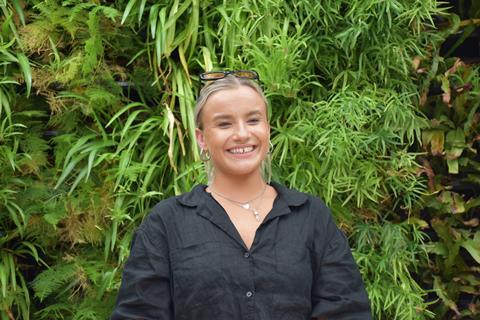
While it’s getting easier to find data on how many queer characters we see in TV and film (the annual GLAAD surveys for example), there are few stats on how many people in our industry actually identify as part of the queer/LGBTQIA+ community. But in an industry that prides itself on creativity, it’s not necessarily the stats that would reflect how inclusive we are. It’s not a numbers game – plus people come out at different points in their lives, and sexuality and gender are fluid. Some may want their workplace to know how they identify in this respect, some may not. So instead of rounding up stats, we thought it’d be a good measure of Pride within our industry to ask some of the LGBTQIA+ community in post-production and VFX about their experiences, mentors, hopes and concerns this Pride month.
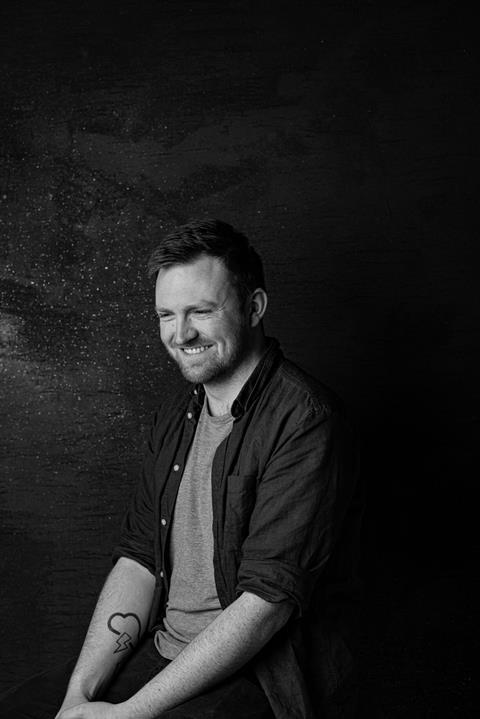
Aaron Carroll, head producer for film and TV, Windmill Lane, He/They
Have you faced any specific challenges as an LGBTQIA+ identifying person working in post-production?
I have been somewhat blessed in that I’ve been able to work in the incredibly supportive environment of Windmill Lane for most of my career. I came out to my manager at the time on my second day with all the bravery of a newly out 20-year-old. He took it in his stride, swapped the pronouns in his jokes about my personal life, and moved on.
That’s not to say there haven’t been challenges or inappropriate behaviors over the years.. There are always certain collaborators you feel the need to reign “it” in for, drop the voice on a call, cover the pride badge on your coat, etc etc. Even something as simple as wearing a set of big pink headphones on a call can cause some uncomfortable comments to be made in your direction (Unfortunately, a true story)
However, I do feel like the number of instances are getting less and less every year. Whether that’s a reflection of changing times or me growing more confident in my queer identity, I couldn’t tell you!
What can the industry do to further support and promote equality and inclusivity?
I know some people are probably sick of hearing “Representation Matters” but I feel it really is the key here, and not just on screen. Making sure that people and stories aren’t overlooked because they’re not “One of the lads” is a huge obstacle for both the Queer community and other minority groups and the only way to overcome it is to make sure we’re in the room helping to make those decisions.
As well, I think it’s hugely important not to limit people to the label of “Queer Cinema”. There’s a moment in American Fiction (2023) where Monk realizes all his books have been labeled “African American Studies” no matter the story or genre that really resonated with me. Our community and our stories are so beautifully varied and it’s a shame when in an effort to promote their queerness, their other aspects are forgotten. For example, while both Love Lies Bleeding (2024) and Supernova (2020) are stunning examples of Queer stories, they both belong to widely different worlds and genres and I think that needs to be recognized and celebrated.
What role do you see for allies in supporting LGBTQIA+ colleagues in the industry?
I think allies’ main role is being vocal in their support. It’s all well and good to support in theory, but they need to back it up with action. I’ve been in many rooms listening to inappropriate comments while allies did not speak up.
Again, I am seeing progress over the years. Even small things like putting pronouns in your email signature being normalized in recent years makes such a difference, as opposed to only people in the community using it.
Are there any projects you’ve worked on that you feel particularly proud of in terms of LGBTQIA+ representation?
John Butler’s Papi Chulo (2018) is the one that hit me hardest. The movie itself is gorgeous and the duo of Matt Bomer and Alejandro Patiño is fantastic as lonely weatherman Sean bringing Lation Worker Ernesto into his world. I have always wanted to work with director John Butler after the landmark Handsome Devil (2016, which I was actually an extra in! See if you can spot my left ear in the bar scene), and being able to work on Papi Chulo meant so much to me. It meant even more when a few months after release my Mother rang me up gossiping about this fantastic “Gay Weatherman” movie she saw on Netflix that broke her heart and that I needed to watch it and we should watch it together.
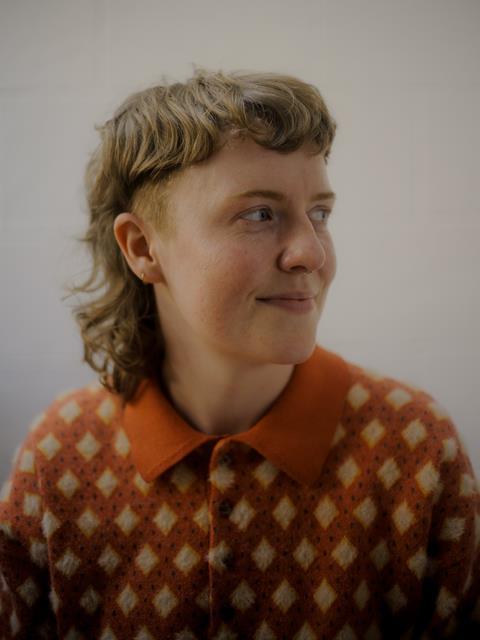
Annie Wire, VFX production coordinator, Goodbye Kansas Studios, They/She
Have you faced any specific challenges as an LGBTQIA+ identifying person working in post-production?
What’s challenging is being put into a box a lot of the time for being an AFAB (assigned female at birth) person and the consistent use of language that I am not comfortable with being used to describe me.
When others don’t have the vocabulary in order to recognise my identity it can be tiresome. I am lucky that in my home my identity is understood and affirmed but it would be extra challenging to work in VFX if this wasn’t the case.
Being called ‘Girl’, ‘Lady’ or ‘Woman’ when I don’t have any connection to those words is a small thing but simultaneously for myself an awkward interaction.
What can the industry do to further support and promote equality and inclusivity?
Have more queer people working on queer projects!
And for people working in this industry to have an equally good understanding of what gender and identity is alongside being proactive about learning the language they may not understand or know about.
What role do you see for allies in supporting LGBTQIA+ colleagues in the industry?
To also be the ones who introduce pronouns at the very least, it’s a good starting point for any person to feel comfortable, and to see that assuming it’s the queer person’s job to start that conversation might be difficult, especially within a mainly hetronormative working environment like VFX.
How does your identity as an LGBTQIA+ person influence your creative decisions?
It impacts the way I speak to people, I am always making a conscious effort to ensure everyone is included and we are being inclusive in conversations and meetings. And with colleagues outside of working hours in a more social setting we seem to float towards having conversations on Gender and Identity, in a way it is sought out naturally from my peers, seeming to want a better understanding of how to approach and talk with LGBTQIA+ folks, which is very lovely.
What advice do you have for building a supportive network in the industry?
It’s hard online to identify the queer people so having a space where everyone can safely share thoughts and have solidarity with others is good.
Also having visual signals for example introducing pronouns on emails and chat is an easy way to get the queer conversation started!
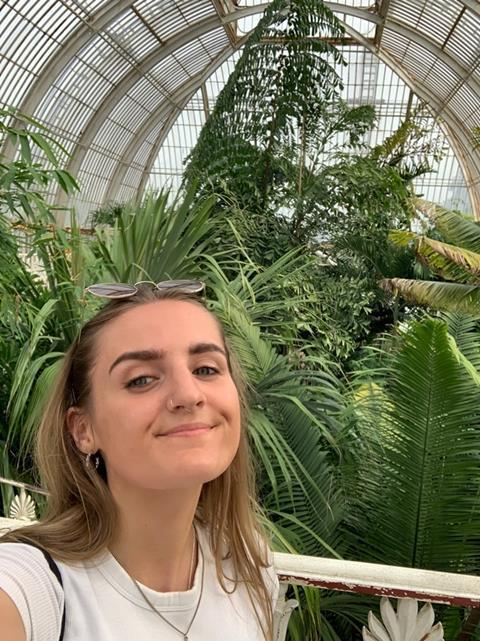
Francesca Bourne, foley mixer, Molinare, She/Her
In your experience, how has the industry’s attitude towards LGBTQIA+ individuals changed over the years?
The last few years have seen a massive increase in LGBTQIA+ inclusive media, which promotes community and acceptance for those watching and working within the industry. Showing queer relationships on screen was illegal for many years, mostly depicted through subtext. Today, queer media is louder and prouder than ever, encouraging viewers to embrace their identities. While there’s still a long way to go for full equality, the industry is making significant strides in bringing LGBTQIA+ stories to the forefront.
What can the industry do to further support and promote equality and inclusivity?
Diverse employees bring diverse experiences, skills, and ideas. Promoting equality and inclusivity strengthens any team, and postproduction is no exception. Continued funding for projects with inclusive storylines is crucial. Working on media that showcases LGBTQIA+ and other diverse stories is incredibly rewarding. It’s an honor to help bring content to life that makes a difference to the LGBTQIA+ community and shares our stories with the world.
What role do you see for allies in supporting LGBTQIA+ colleagues in the industry?
Creating and maintaining a safe and welcoming working environment is paramount. When I experienced this and felt valued, I felt comfortable sharing my identity with my coworkers. Allies should educate themselves on LGBTQIA+ issues and not be afraid to ask questions if they’re unsure. This openness fosters understanding and support within the industry.
Are there any projects you’ve worked on that you feel particularly proud of in terms of LGBTQIA+ representation?
Killing Eve was an important show that went beyond the relationship between the two queer leads. It presented complex characters with overarching storylines not defined by their sexuality.
Heartstopper has been another beautiful project, full of representation, differing identities, and the complexities of first love, while addressing difficult topics to inform and include its viewers.
Nimona featured a genderfluid protagonist with a central queer romance, using the metaphor of LGBTQIA+ figures being ostracized and turned into monsters, and showcased characters fighting for equality.
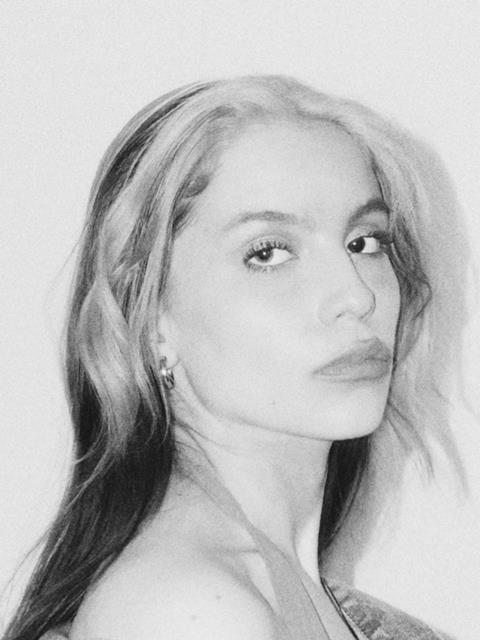
Ida Ippolito, coordinator, Goodbye Kansas, She/Her
Have you faced any specific challenges as an LGBTQIA+ identifying person working in post-production?
First starting in the industry I definitely had times which I felt like I did not belong due to lack of LGTQBIA + representation. Although I do have the privilege of being straight-passing when in unaccepting environments, I have put out with an amount of subtle remarks and ignorance in regards to my queerness. The VFX industry and especially the video game industry still has a long way to go in terms of being inclusive from an intersectional standpoint.
What can the industry do to further support and promote equality and inclusivity?
Studios and agencies should openly be advocating for diversity on a multidimensional level.
The first step is encouraging and supporting the creation of content that includes authentic LGBTQIA+ characters and narratives. It is still a rarity to see queerness represented in a way that isn’t simply meant to fetishize or mock. Promoting the casting of LGBTQIA+ actors and ensuring that queer individuals are part of the creative process is laying a foundation for a more prideful industry.
The second step I believe is building a supportive work environment - this is essential in any type of production, where collaboration and communication is key.
Majority of LGBTQ+ representation in video games comes from independent companies, but getting big companies to take a chance on a title that’s going to reach billions of people is a bit of a different saga it seems.
What role do you see for allies in supporting LGBTQIA+ colleagues in the industry?
Allies can definitely help amplify the queer voice and provide support when needed.
Practice awareness by accountability. Hold leaders accountable by meeting diversity and inclusion goals. If they are none, make it known.
Listen, educate yourself, don’t be afraid to ask questions nor do your own research and education.
How does your identity as an LGBTQIA+ person influence your creative decisions?
I do believe my personal journey has subconsciously heightened my empathy and emotional depth which is crucial in storytelling. This helps me create and support the work of stories that resonate deeply with audienCes, regardless of their background.
How do you handle situations where you feel your contributions are undervalued or overlooked because of your identity?
The short answer is perseverance and resilience …It is difficult, oftentimes it is quite subtle but in the long run microaggressions do build up.
Currently what has helped is participate in initiatives that promote diversity and inclusion within the workplace. I cannot stress enough the importance of commitment to improving the culture for everyone.
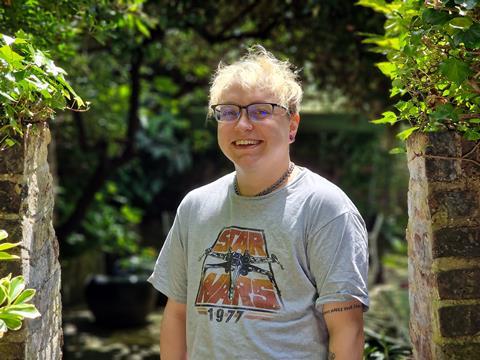
Kitt Hÿtch, senior edit assistant/technical operator, Clear Cut, He/They
Have you faced any specific challenges as an LGBTQIA+ identifying person working in post-production?
I’ve faced a few challenges within the TV industry, Mainly during my transition, I’ve had to leave positions because of Transphobic and homophobic behaviour before, Having to play “Educator” to people much higher up in companies. Asking for basic needs (Using correct pronouns, gender neutral bathrooms) and being shut down by poorly educated HR teams.
I pride myself on being an open book and having any convocation with people but there is always the risk of opening a convocation with someone and it turning sour and it also is emotionally exhausting.
What can the industry do to further support and promote equality and inclusivity?
It is so easy now to research and gain resources to help LGBTQIA+ employees feel comfortable in the workplace, There are many speakers that can be hired to host talks and Q&A’s to companies, Online resources on how to improve a company’s Allyship. Even something as simple as having someone’s pronouns in their email signature can be a huge help. And to publicly share their allyship via social media. It’s so important for a company to publicly show their allyship during these incredibly challenging times. Especially for the transgender community
Have you had mentors or role models in the industry? How have they influenced your career?
At the very beginning of my career, Very early in my transition I worked with an Offline Editor called Ben Lavington-Martin. He was the first person that took me under his wing and taught me a lot about offline editing. And just accepted who I was, no questions asked. Months after we worked together, I asked him for him to be my first reference. and what he gave me was the sweetest letter that really lifted my spirits and helped me get to be where I am now. I learnt from him to just be friendly and uplifting. I still very much admire him and always keep a copy of that letter on my phone to read just in case I need a pick me up.
What specific advice would you give to LGBTQIA+ individuals who are considering a career in post production?
Be unapologetically yourself.. You are entering a creative industry and in doing so, working with creative openminded people. You’ll be surprised how quickly you will fit in. But never sacrifice your mental health and wellbeing for a job. There are plenty of allies and fellow queer people in the industry who will support you.
What advice do you have for building a supportive network in the industry?
Listen to people. Everyday I’m learning something new, and find people you can trust at work to talk to if you need to. For people in higher positions that manage teams, Be open to listen to people and look after your team. Happy and motivated employees is the most important thing. Having a senior member of the team trained in Mental Helth, so that people know someone they can talk to with confidence really goes a long way.
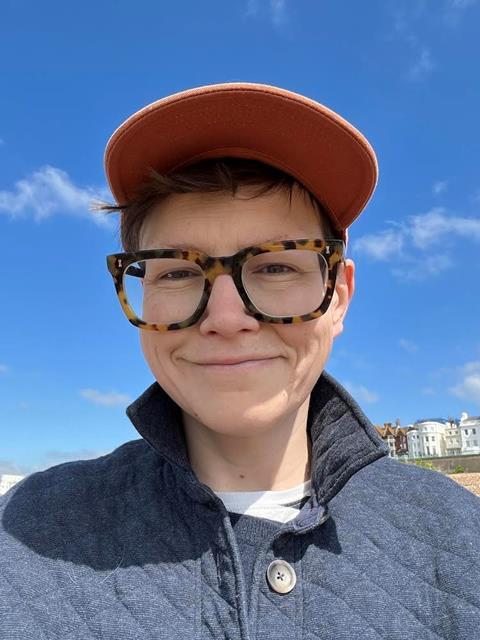
Lauren McCallum, vice president, VFX, Scanline VFX, She/Her
In your experience, how has the industry’s attitude towards LGBTQIA+ individuals changed over the years?
The most impactful change I’ve personally experienced is a result of the pandemic and shift to WFH. At Scanline, we’ve truly embraced hybrid working, and one significant outcome of this approach is that it has enabled colleagues and myself to explore gender expression in a novel environment where we are in control of how much of our experience and exploration we share. I love that this has given more control to members of our community to be their authentic selves in a safe and supportive environment.
What can the industry do to further support and promote equality and inclusivity?
Be the change you want to see. As a member of the LGBTQIA+ community and the industry, I take it upon myself to be visible and vocal -I consider this a personal responsibility. I’m proud to be a married gay leader at Scanline and I happily share my identity and neurodivergence with my teams. I try to show how both of these parts of me contribute to my approach to leadership, equity and advocacy.
What advice do you have for building a supportive network in the industry?
Many VFX companies have informal or formal employee resource groups; seek them out and build your community within the business. If your company doesn’t have one, consider starting one! Access VFX also has QVFX, an inclusive LGBTQI+ community hub for the VFX, Animation, and games industries that helps connect folks across the industry.
Have you faced any specific challenges as an LGBTQIA+ identifying person working in post-production?
I get misgendered a lot. As I regularly work between Seoul, LA, London, and Vancouver, I’ve become an expert at context shifting. I try to appreciate and value each unique culture I work in and ensure my management meets my team where they are while still being authentic, real, and safe.
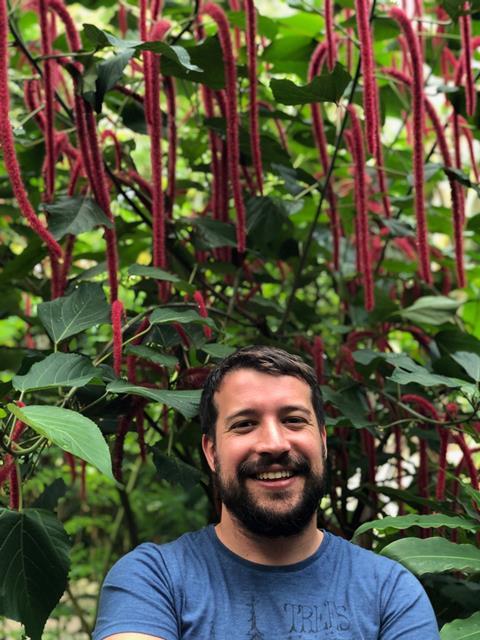
Luis Reggiardo, colourist, Digital Orchard Group, He/Him
In your experience, how has the industry’s attitude towards LGBTQIA+ individuals changed over the years?
The industry has become more inclusive and supportive over the last decade. When I first started, there were fewer openly LGBTQIA+ individuals, and there was a palpable sense of having to fit into a heteronormative mould. Over time, with the rise of more diverse representation both in front of and behind the camera, there’s been a noticeable shift towards inclusivity. More production companies are adopting policies that support LGBTQIA+ rights, and there’s greater visibility and acceptance overall. However, progress has been uneven, and bias and discrimination persist in many corners.
What can the industry do to further support and promote equality and inclusivity?
The industry should prioritize LGBTQIA+ hiring and promotion into decision-making roles, provide comprehensive anti-bias training, establish clear non-discrimination policies and reporting systems, and actively celebrate LGBTQIA+ stories and creators through increased representation.
The industry can do more by actively promoting diversity and inclusivity through various initiatives. This includes creating more mentorship programs for LGBTQIA+ individuals, fostering an environment where all voices are heard and valued, and implementing strict anti-discrimination policies.
What role do you see for allies in supporting LGBTQIA+ colleagues in the industry?
Allies play a crucial role in creating a supportive and inclusive environment. They can help by actively listening to and amplifying LGBTQIA+ voices, advocating for inclusive policies, and challenging discriminatory behaviour when they see it. Allies can also educate themselves and others about LGBTQIA+ issues, thereby fostering a more understanding and supportive workplace culture.
Consistent, vocal allyship is powerful.
What specific advice would you give to LGBTQIA+ individuals who are considering a career in post-production?
My advice is to research LGBTQIA+ friendly companies, seek out mentors, build a strong support network, and prepare to face some ignorance by educating yourself and others. But also know you have so much to offer this creative field.
Be true to yourself and don’t be afraid to bring your unique perspective to your work. Seek out mentors and build a network of supportive colleagues. It’s also important to find companies and projects that align with your values and where you feel respected and valued. And be prepared to face some ignorance by educating yourself and others.
What advice do you have for building a supportive network in the industry?
Building a supportive network involves actively seeking out like-minded individuals and creating genuine connections. Attend industry events, festivals, and LGBTQIA+ networking meetups to meet peers and potential mentors. Join professional organizations and online communities that focus on inclusivity in the film industry. Don’t hesitate to reach out to colleagues whose work you admire and engage with them professionally. Lastly, be supportive of others in your network; fostering mutual respect and assistance helps build a strong, supportive community: Choose to surround yourself with those who truly see and value you.
Are there any projects you’ve worked on that you feel particularly proud of in terms of LGBTQIA+ representation?
One project I’m particularly proud to have worked on is the hilarious film TOPS by Amy Pennington. It’s a 90s mockumentary style that asks the simple yet provocative question “What top did you want to wear after top surgery?” TOPS centres the experiences of trans individuals through a light-hearted yet insightful lens. By delving into this very personal query with four different subjects, the film explores important themes around top surgery, gender identity, body image, and community with both tenderness and raucous humour.
TOPS also celebrates the joy, resilience, and camaraderie of the trans community. It’s a daring departure from the often sombre trans narratives portrayed, allowing space for them to be vulnerably human while still finding the humour in their situations.
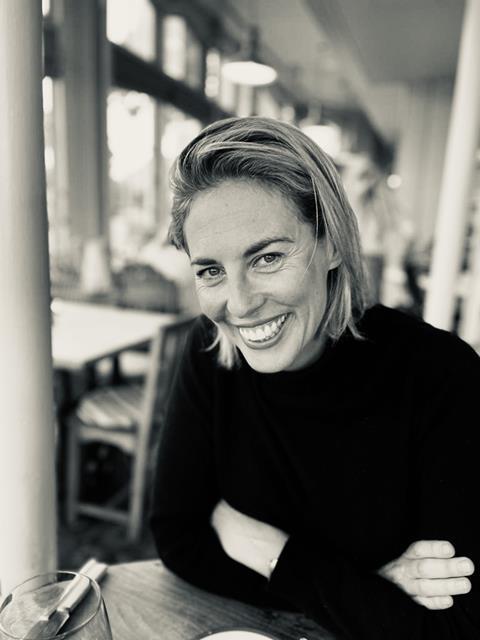
Nicola Whitehead, senior business development manager & Dominic Briere-Edney, senior business development executive, Envy Post, She/Her & He/Him
Have you faced any specific challenges as an LGBTQIA+ identifying person working in post-production?
NW – Coming out in the mid 90’s as a runner was challenging to say the least, the lewd remarks from older male clients, and certain employers that shall remain nameless over the years (more than one) asking what I got up to in bed was a regular occurrence. These were not the days of going to HR to complain, it was considered ‘banter’. It’s a totally different environment these days.
DBE – I think the TV industry has always been way more progressive in terms of LGBTQIA+ representation and inclusivity than most. I’ve always felt that I had people to talk to as I was growing up in the industry and 20 years later I enjoy being someone the next generation can lean on and look up to. We’re lucky and should be proud of ourselves for nurturing such an environment. It’s about time the rest of the world caught up.

In your experience, how has the industry’s attitude towards LGBTQIA+ individuals changed over the years?
NW – People are much more open about their sexuality and gender these days, homophobic comments would not be tolerated.
What can the industry do to further support and promote equality and inclusivity?
NW – A LGBTQIA+ networking event would be a boon.
DBE – We need a little more support than the lazy company logo ‘rainbow washing’ during Pride Month. Yes, you may be an ally but what are you really doing to show your support? I think promoting and supporting LGBT events, fund raising, charitable contributions etc has to happen alongside otherwise it’s meaningless.
What specific advice would you give to LGBTQIA+ individuals who are considering a career in post production?
NW – Don’t be afraid to be yourself, it’s a very welcoming environment for LGBTQIA+ people, and anyone that isn’t welcoming is in the minority these days! Also the more out you are, the more comfortable you’ll make other people feel so that they can be their authentic selves as well.
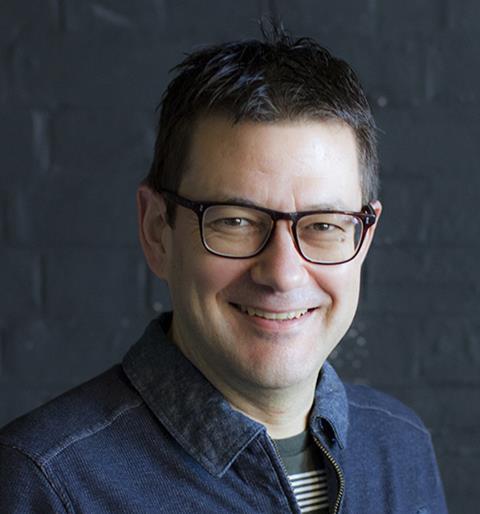
Peter Zacaroli, joint MD and senior colourist, West Digital, He/Him
Have you faced any specific challenges as an LGBTQIA+ identifying person working in post-production?
It was a very blokeish culture when I entered the industry back in the mid nineties. This has improved in recent years but I think the industry still has quite a long way to go.
In your experience, how has the industry’s attitude towards LGBTQIA+ individuals changed over the years?
It’s definitely got better than it was, when I joined I would be nervous about letting people know I was gay and now it’s as easy as the chat we normally have with someone about their kids.
What can the industry do to further support and promote equality and inclusivity?
Treat people’s identities as part of them, not all of them and meet people where they’re at.
What role do you see for allies in supporting LGBTQIA+ colleagues in the industry?
I think it’s about being gently supportive, listening, and not thinking that because you know one person who belongs to X identity that all people with that identity are the same. We’re all a mess of intersecting identities.
What specific advice would you give to LGBTQIA+ individuals who are considering a career in post production?
Find a place that accepts you for who you are without having to make compromises.
How does your identity as an LGBTQIA+ person influence your creative decisions?
As a colourist I don’t think my identity affects creative decisions. It does affect how I interact with people in the room and how comfortable they feel working with me.
Are there any projects you’ve worked on that you feel particularly proud of in terms of LGBTQIA+ representation?
This year I graded Rylan: Homophobia, Football and Me made by our friends at Buzz 16 about the homophobia still present in the world of football. I also graded Sperm Donor Wanted for Rent Productions, about a trans couple’s search for a sperm donor.
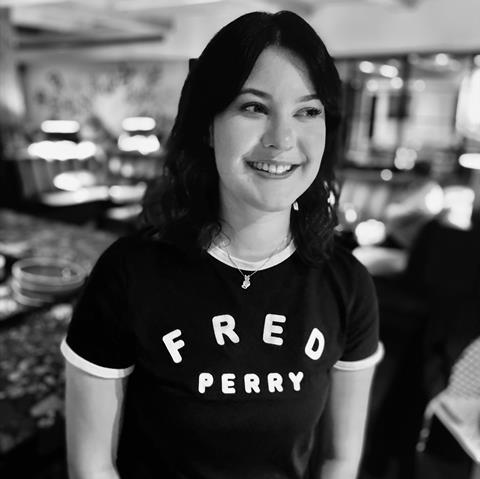
Rebecca Smith, dubbing mixer, Platform Post, She/Her
What can the industry do to further support and promote equality and inclusivity?
We’ve come a long way over the past decade or so, from recognising and supporting LGBTQIA+ colleagues in the industry to television shows featuring a record number of LGBTQIA+ characters. However there are lots of areas which could still benefit from work.
Television holds an important role of being able to inform and positively influence people, therefore there needs to be a push for shows to feature more diverse LGBTQIA+ characters, particularly ones that fall outside of stereotypes, and to include a wider range of stories.
To encourage and assist LGBTQIA+ people with getting into the industry, support and representation from the beginning, which continues throughout their career, is key. Seeing other LGBTQIA+ industry professionals succeed is inspiring and can really help those who don’t feel confident making those first few steps.
Recognition of LGBTQIA+ people outside of pride month is also important and sometimes forgotten.
Have you had mentors or role models in the industry? How have they influenced your career?
I’ve been fortunate to work within a really supportive, uplifting company which promotes inclusion and diversity. The audio department has been continuously supportive and respectful; head of audio Ben Hood is a wonderful mentor and actively strives for fairness and equality. I feel empowered to progress in my career and to encourage other LGBTQIA+ people with an interest in post production to get involved.
What role do you see for allies in supporting LGBTQIA+ colleagues in the industry?
Awareness and understanding from allies, as well as an open mind, goes a long way. Standing up to discriminating behaviour and implementing zero tolerance policies are also essential for LGBTQIA+ people to be treated equally and fairly, as well as feeling safe in their workplace.
Further, actively promoting inclusivity is key, particularly from colleagues in more senior roles, as this helps to create an atmosphere of acceptance.
Are there any projects you’ve worked on that you feel particularly proud of in terms of LGBTQIA+ representation?
I mixed a short film for Tate called Queer Cornwall which looked into the lives of three artists in Cornwall, exploring the concepts of gender and sexuality. It’s a really interesting film and considers important topics, including how we portray LGBTQIA+ people of the past.
I’ve also worked on various series of CBBC’s Operation Ouch! in dubbing editor and VO/ADR recording roles. Dr Ronx Ikharia, one of the presenters on the show, is a trans non binary doctor. Them being such an integral part of the show is wonderful and gives young children invaluable LGBTQIA+ representation, something I wish existed more for me as I grew up. As Ronx often quotes, “you cannot be what you do not see”.
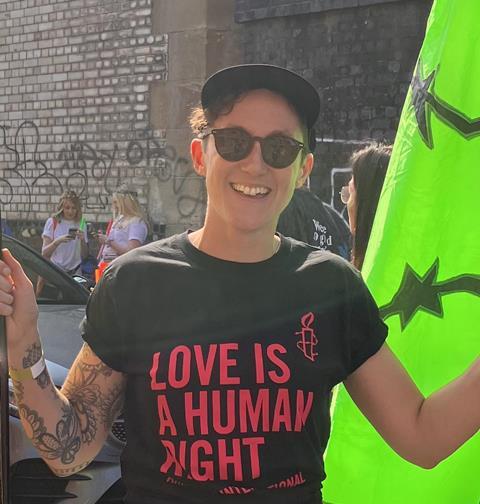
Betty Warburton, post-production operations manager, dock10, She/Her
Have you faced any specific challenges as an LGBTQIA+ identifying person working in post-production?
I have struggled with feeling as though I was lacking role models at work in the past and have found it difficult to feel I belong in some of the dominant heteronormative environments I have worked in. I spent a long time trying to ‘fit in’ in the industry as much as possible, without really realising I was doing so. I tried to present myself and to operate in a certain way that I thought was more acceptable, as if who I was wasn’t entirely valid. It took a long time, but as I have progressed in the industry and taken on more responsibility, I have realised that I can be good at my job and be successful as myself, with my queer identity and gender expression, without feeling like I needed to conform to an external, uncomfortable standard. I really hope that for people coming through now, there is more freedom to do that from the start of their careers.
In your experience, how has the industry’s attitude towards LGBTQIA+ individuals changed over the years?
Television and the creative industries have had a reputation for accepting queer people for a long time, and I have never experienced hostility, but my experience of the acceptance is that it has tended to be quite narrow. Certain types of gay people have been welcomed, but that welcome has sometimes been conditional. However, there are very different and much more accepting attitudes among young people I’m employing now, and this is having a hugely positive influence on the wider industry. Not only are people coming into Post more open to a whole variety of queer identities, they actively demand a workplace that foregrounds acceptance and diversity as a key value.
What can the industry do to further support and promote equality and inclusivity?
There needs to be proper recognition in the industry of the values and experiences that are taken as the default. Different people bring different strengths, and diversity within an organisation, a team or a production will generally lead to better outcomes. Sometimes favouring diversity and inclusion will necessitate a willingness to question and disrupt long-held assumptions about the best way to do things and will involve difficult and uncomfortable conversations - but without these very little changes.
What role do you see for allies in supporting LGBTQIA+ colleagues in the industry?
Listening and being curious. Recognising that there are many different forms of queerness and many different ways of being LGBTQIA+. Most importantly, listen to queer people and actively engage with their experiences. It is one thing to have rainbow branded events for one month every year, but without listening to LGBTQIA+ people all the time, those rainbow branded events risk falling flat - or worse, they risk not engaging the queer people who feel that their experiences and needs are not being fully understood.
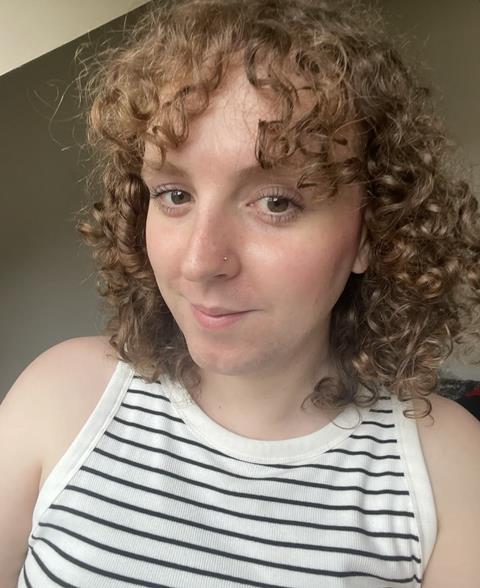
Charli Eaton, dev ops administrator, Moonraker VFX, She/Her
What role do you see for allies in supporting LGBTQIA+ colleagues in the industry?
I think education is the most important thing here. I think that cis gender, hetrosexual people should spend time educating themselves on queer issues. I think being a queer person, particularly a trans person, you often end up as people’s personal wikipedia which can just be exhausting at times. I personally don’t really mind answering a fair few questions but I know some do and again for trans related questions they often end up being super invasive.
Beyond that I think that people just need to treat us as they treat non queer folk. I have often picked up on people feeling like they need to tread on eggshells around me. This is just so unnecessary. As long as it is an occasional mistake something like misgendering isn’t something I am going to bite your arm off over.
What specific advice would you give to LGBTQIA+ individuals who are considering a career in post production?
Do it! We need more of you! It’s rather shocking how not diverse this industry is and that needs to change! With it being a creative industry I was expecting more queer people but I’ve not really found many at all. I’ve found it to be super welcoming and company policy and mentality is very accepting of queer people.
Have you faced any specific challenges as an LGBTQIA+ identifying person working in post-production?
In general working in post-production has been the most welcoming industry I have ever worked in but that’s not to say it is perfect! When I started in this industry mis-gendering was a somewhat common occurrence. In all honesty though I didn’t dress the best and had only just started my medical transition (though this is never a good excuse for misgendering and there is no need to medically transition). This wasn’t great and it still happens sometimes these days, though it is often people from an older generation who get it wrong.
Part of my job is getting people setup with all our IT systems. Now this hasn’t happened yet but I am concerned that one of these days I will meet someone who is really transphobic. I’m not really sure what the fallout from this would be but it is just a concern that lives in my head.
Something else I’d like to bring up is that I am yet to meet one single other non cis gender person in this industry. I get that it isn’t likely to happen but just in general I would like to see many more queer people working in this space.
What can the industry do to further support and promote equality and inclusivity?
I have been made to feel very included by my employer (Moonraker VFX). Moonraker makes specific mention of the support of Trans people in their employee handbook which doesn’t feel like it’s just been copied & pasted from some template. When I initially started with them I had not yet legally changed my name but Moonraker was so supportive in using my chosen name wherever it was legally possible to do so. All this is great and I hope that other companies in this industry are doing something similar!
All this being said there is still room for improvement in this space. I am not exactly sure what this would look like but I think it would be nice to form some sort of group where queer people in this industry can get together.
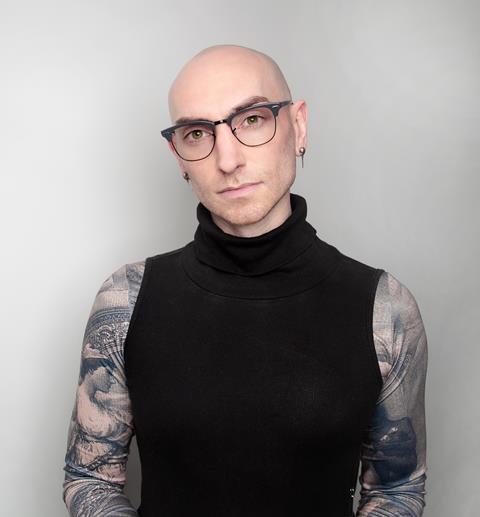
Tom Watts, director of photography, represented by Loop Talent, they/them
What can the industry do to better support and promote equality and inclusivity?
One of the biggest aspects of this is for people in the industry to understand the ‘why’ of it. Why is the industry better when it’s more equal and inclusive? When people understand the ‘why’ then the action is second nature. Rather than seeing it as a trend to follow, a quota to meet or a box to tick, people need to first and foremost understand the value that equality and inclusivity brings for everyone.
What role do you see for allies in supporting LGBTQIA+ colleagues in the industry?
A huge role of allies is tone setting of non queer spaces. If allies can make those spaces feel welcoming and safe for anyone then we can all focus on working together and doing our jobs rather than just feeling unwelcome and uncomfortable.
What advice do you have for building a supportive network in the industry?
Don’t forget the people you pass on the way up. As creatives we can have a tendency of only ever looking forward to the next project or opportunity. As an industry we can have a tendency of closing the door behind us on the way up. My dad had a satirical saying he was fond of. “The working class can kiss my arse, I’ve got the foreman’s job at last.” It’s critical to practise what we preach. As you progress through your career make sure the path behind you is open to others who now look up to you just as you look up to those in front of you.
Are there any projects you’ve worked on that you feel particularly proud of in terms of LBGTQIA+?
I recently wrote and directed my first short film, Misery Loves Company that I’m really proud of. It’s about an early 20s man who has fallen into alt right ideology having a conversation with his future trans woman self. At a time when political ideologies are so deeply entrenched and embattled, the most important thing we can do is learn how to communicate to each other as a society.
Giuliano Vigano, VFX supervisor, BlueBolt, He/Him
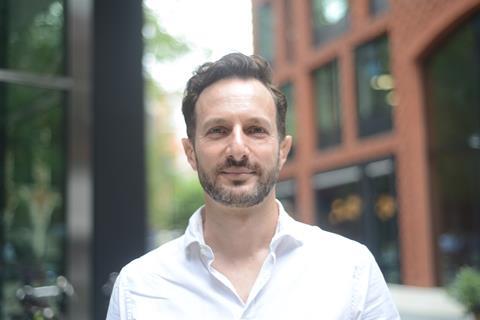
Have you faced any specific challenges as an LGBTQIA+ identifying person working in post-production?
I have been working in the industry for the past 24 years and I have never encountered any homophobic attitude towards me. I have always been considered one of the team and was only judged on my performance, I never felt I had to hide my sexual orientation in the film industry.
In your experience, how has the industry’s attitude towards LGBTQIA+ individuals changed over the years?
I feel the industry attitude towards LGBTQIA+ has evolved along with the cultural movement of inclusivity. I have seen a lot of representation both on production and post production and I love how everyone seems comfortable to show their identity at work.
What can the industry do to further support and promote equality and inclusivity?
I think visibility is always a massive bonus for a minority. Access VFX’s QVFX is a massive step forward to allow people to feel safe to show their true selves.
Have you had mentors or role models in the industry? How have they influenced your career?
Yes, there have been a number of VFX supervisors that have shaped my career and how I wanted to be in this current role. Post-production can be stressful and demanding and I always admired a professional who led a team with calm, kindness and humour no matter what the situation was.
How do you handle situations where you feel your contributions are undervalued or overlooked because of your identity?
Fortunately I have never felt overlooked or undervalued because of my identity as my sexual orientation was never factored in my performance or team work
What specific advice would you give to LGBTQIA+ individuals who are considering a career in post production?
To be yourself and live your true identity. The film industry is more focused on talent and professionalism than what your identity is.
Are there any resources, organizations, or communities you would recommend to LGBTQIA+ individuals entering the industry?
Yes, Access VFX’s QVFX is a wonderful step forward to promote inclusivity and a safe space to be build confidence to embrace your identity.
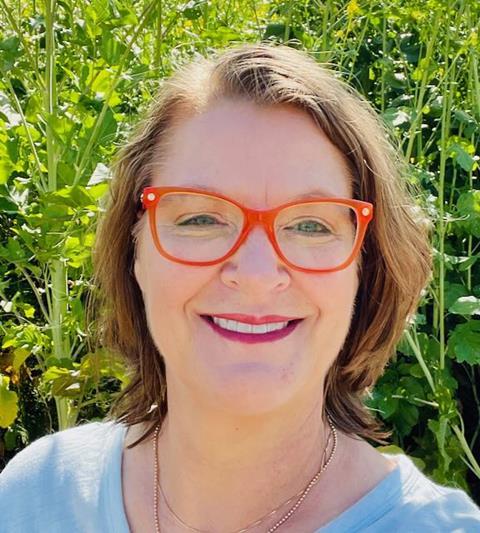
Deborah Henderson, general counsel, Pixomondo, She/Her
Are there any projects you’ve worked on that you feel particularly proud of in terms of LGBTQIA+ representation?
Absolutely! I worked on the Netflix series Tiny Pretty Things, which is a drama featuring strong LGBTQIA+ characters. Our team was very deliberate about ensuring diverse and authentic representation both on-screen and behind the camera. We challenged ourselves to craft LGBTQIA+ storylines that addressed issues that aren’t talked about in the community as much as they should be such as mental health, eating disorders, and finding real joy in life.
The show was also a pivotal moment in my life. During its production, I came out, partly because the show was created by a truly accepting group, from the showrunner down. It was surreal but immensely gratifying to come out in that moment surrounded by that team.
Have you faced any specific challenges as an LGBTQIA+ identifying person working in post-production?
Coming out late in life, I anticipated some challenges, but surprisingly, it’s been more positive than not. Initially, there were a few awkward moments with colleagues who had known me for years, but overall, the transition was smooth. The biggest challenge was my own hesitation and fear of how it might affect my professional relationships and opportunities. However, I’ve found that authenticity has only strengthened my connections and opened up new opportunities for collaboration and support.
What can the industry do to further support and promote equality and inclusivity?
Asking what the “industry” can do is interesting, because the industry itself is just a concept. It can’t act on its own. But the industry is made up of individuals like you and me, who, regardless of our roles, share a common goal: to create entertainment and share it with the world. None of us would still be here if we didn’t care deeply about this work. After all, as the saying goes, there are easier ways to make a dollar.
I’ve come to realize that real progress happens when individuals embrace their responsibility and use their power, big or small, to make positive changes. This can mean creating opportunities for LGBTQIA+ crew members, mentoring young LGBTQIA+ writers, or, if you have the power, greenlighting a queer script. Every decision we make can either support or tear down the LGBTQIA+ community.
I believe real progress is the collective result of brave individuals making thousands of good choices. Each of us has a role to play in creating a more inclusive industry and with some good stories, a better world.
In your experience, how has the industry’s attitude towards LGBTQIA+ individuals changed over the years?
Having started my career in Hollywood a long time ago, I’ve witnessed a profound shift in how the industry views LGBTQIA+ individuals. When I started, representation on-screen was almost nonexistent. Ellen DeGeneres’s decision to come out in 1997 marked a pivotal moment, not just for her career but for LGBTQIA+ visibility in media.
Change has been incremental, but as new channels and platforms emerged like Logo, Apple, Netflix, and the Roku Channel, it created opportunities for stories that would have struggled to find a home fifteen years ago. Shows such as Schitt’s Creek, The L Word, and Fellow Travelers have not only entertained audiences but also created opportunities and promoted acceptance within the industry.
Today, I think it’s significantly easier to be out and work in the industry. LGBTQIA+ characters and narratives are more common and are portrayed with greater authenticity. Of course challenges still exist, but the industry has definitely become more inclusive and supportive of LGBTQIA+ individuals






No comments yet